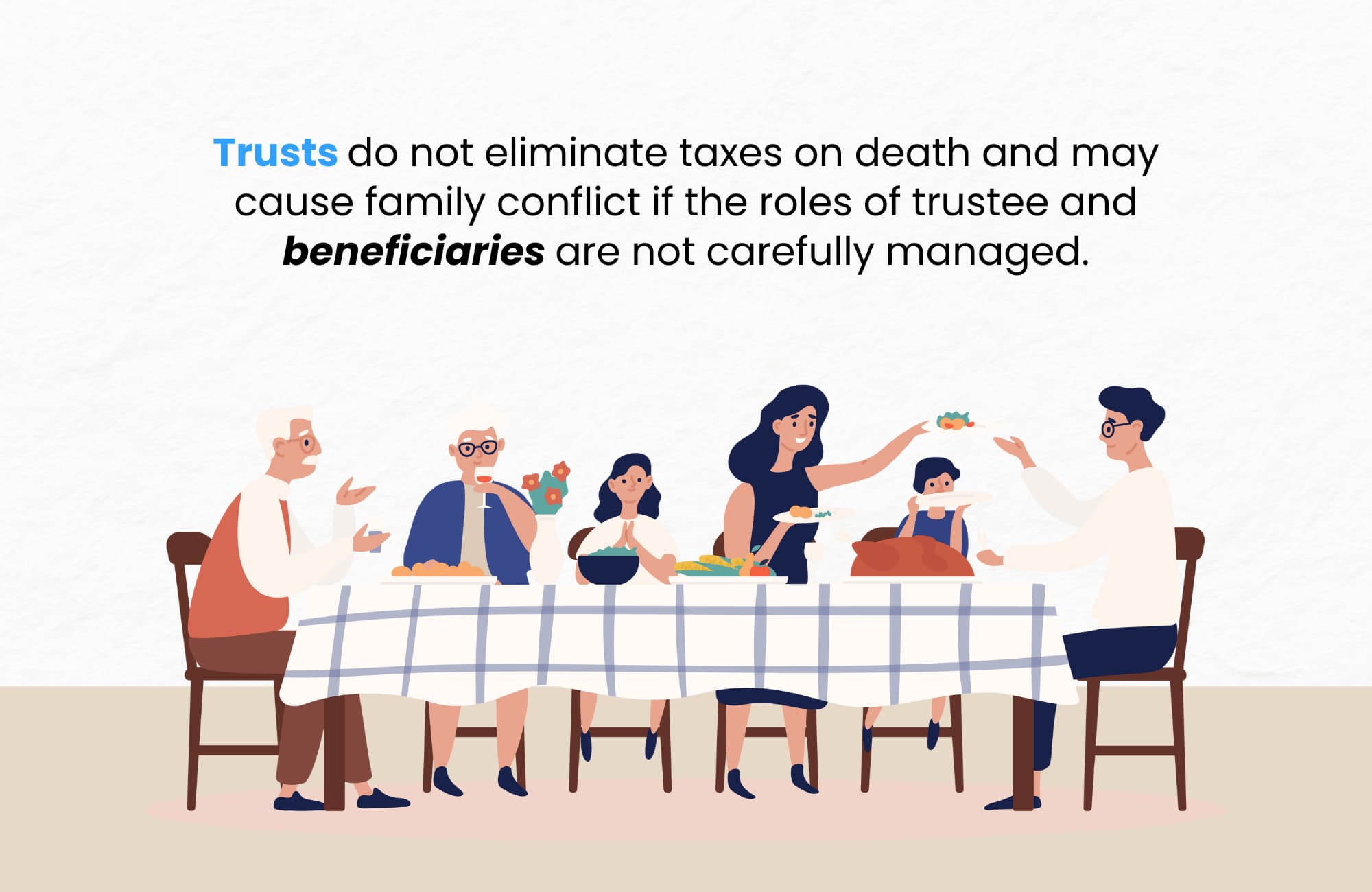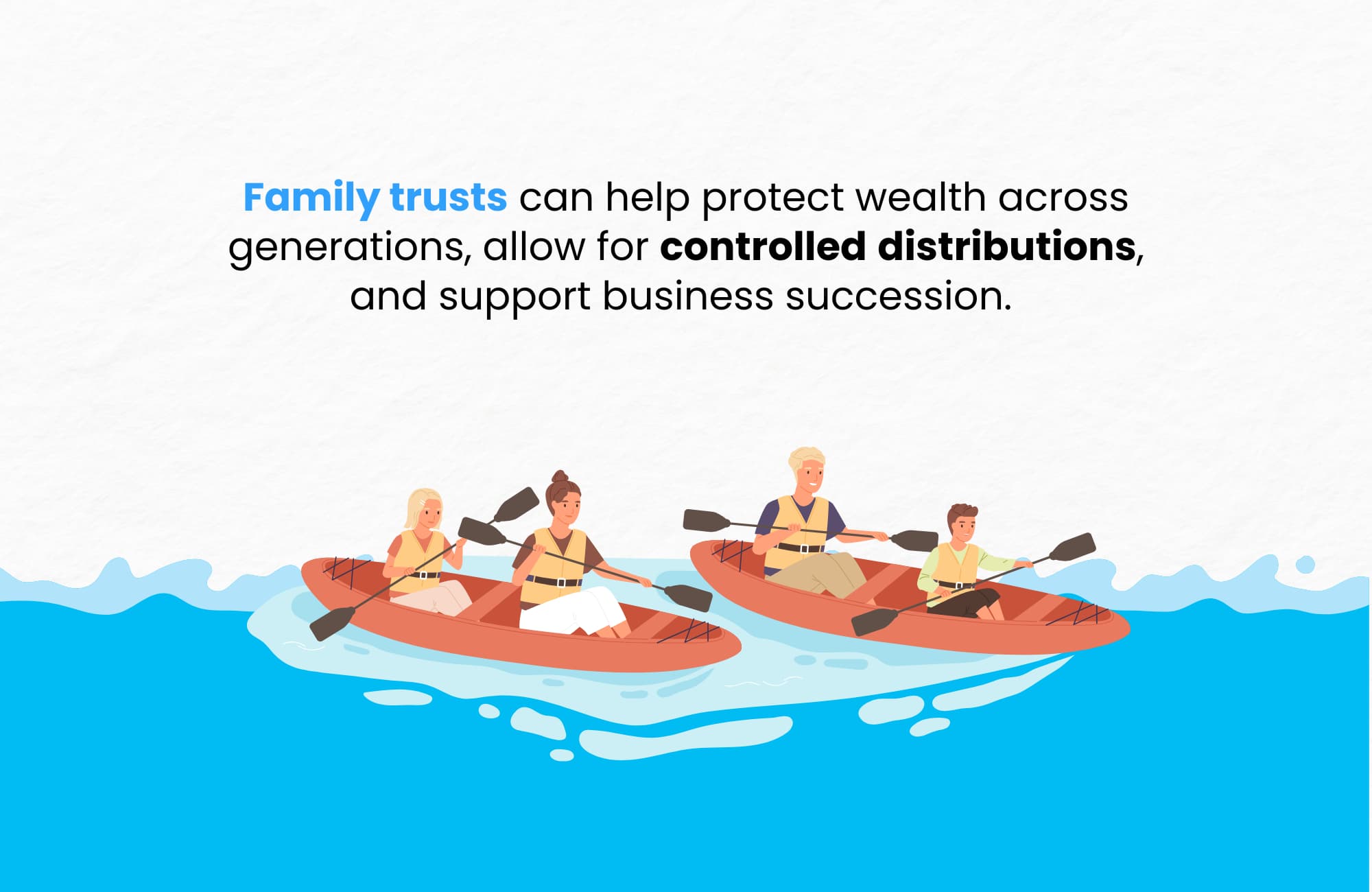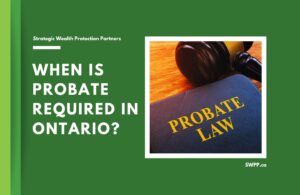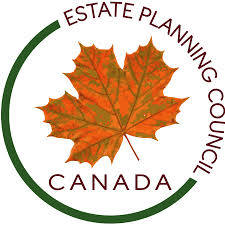Written by Ron Cooke, President & Founder of Strategic Wealth Protection Partners in Ontario, CEA®, Member of the Estate Planning Council Canada
Family trusts have clear disadvantages.
They require setup and legal fees. Ongoing accounting and compliance add costs and income retained in the trust is taxed at the highest marginal rate. Meanwhile, trusts have a 21-year deemed disposition rule which forces a sale or tax event after 21 years.
In addition, family disputes may arise over trustee control and beneficiary rights. Family trusts also reduce flexibility compared to direct ownership.
These limits mean trusts are not ideal for every family. But keep reading to find out who should consider a family trust and who should opt for other estate planning tools.
If you’re in Ontario and planning an estate with $3M or more in investments and multiple properties, I recommend you schedule a call to find out how we can help you save on tax.

Key Takeaways:
- Family trusts can help manage and transfer wealth in Canada
- They involve high setup and ongoing costs
- Key players are the settlor trustee and beneficiaries
- Benefits include tax planning and controlled distributions
- Drawbacks include complex rules and potential family conflict
What are the Disadvantages of a Family Trust in Canada?
While family trusts can be powerful estate planning tools, they do come with challenges.
They can be expensive to set up and require ongoing legal and accounting support, which makes them less practical for smaller estates. The rules are complex, including attribution rules and the 21-year deemed disposition, which can create unexpected tax consequences.
In addition, trusts do not eliminate taxes on death and may cause family conflict if the roles of trustee and beneficiaries are not carefully managed.
Read More: Tax Benefits of Family Trusts

How Family Trusts Work in Canada
A family trust is a legal arrangement created by a trust document.
It allows assets such as investments, business shares, or property to be held for the benefit of selected individuals.
In Canada, family trusts are often used to manage and pass on wealth while offering flexibility and protection for beneficiaries. They can help with tax planning, business succession, and ensuring that future generations are cared for according to the wishes of the person who established the trust.

Key Players: Settlor, Trustee, and Beneficiaries
Every family trust has three main roles.
The settlor is the person who establishes the trust and contributes the initial funds. The trustee manages the assets and makes decisions about distributions in line with the trust’s rules.
The beneficiaries are the family members or other individuals who will ultimately receive the benefit of the trust’s assets.
What Are the Benefits of Family Trusts?
Family trusts can help protect wealth across generations, allow for controlled distributions, and support business succession.
They provide a structure for tax deferral benefits by holding assets until the timing of distribution is most advantageous. Trusts can also support vulnerable family members by ensuring assets are managed responsibly rather than given outright.
In some cases, trusts provide creditor protection and help families reduce exposure to probate fees.

Balancing the Benefits and Drawbacks of Family Trusts
For some families, the benefits of a trust outweigh the costs.
They offer flexibility, tax planning opportunities, and long-term wealth protection. However, the disadvantages such as high setup costs, complexity, and tax rules like the 21-year disposition mean they are not suitable for every situation.
Before creating a family trust, it’s important to carefully weigh the pros and cons with a professional.

Common Questions
What are the problems with family trusts?
They can be expensive, complex, and subject to tax rules like attribution and the 21-year rule.
What is the biggest mistake parents make when setting up a trust fund?
The most common mistake is failing to clearly define distribution rules, leading to disputes among children.
What are the disadvantages of a trust in Canada?
Trusts may involve high costs, administrative complexity, and do not eliminate capital gains tax on death.
Are there tax benefits of Canadian family trusts?
Yes, trusts can provide income splitting and tax deferral benefits, but they must be carefully structured to comply with Canadian tax laws.
Discover the Benefits of a Living Trust in Ontario
Are you an Ontario resident considering a living trust as part of your estate planning?
At Strategic Wealth Protection Partners, we’re here to guide you through every step of the process with expert advice and personalized support. Begin your estate planning journey today with a Living Estate Plan Consultation from our experienced team.
Our mission at SWPP is to help you create an estate plan that secures your legacy, shields your assets from unnecessary taxation, and ensures your loved ones are cared for. By designing a living trust tailored to your goals, our experts will help you build a plan that truly reflects your values and priorities.
Take control of your future—start planning today!
Schedule a Living Estate Plan Consultation
Planning your legacy is about more than numbers—it’s about ensuring your family remembers you and your values are honoured for many years to come.
Estate planning and trusts can feel overwhelming, especially if it’s your first time. That’s why we’re here.
With our simple, 5-Step Living Estate Plan, we make the process easy, helping you create a comprehensive estate plan or trust that protects your assets from taxes and probate fees while preserving your legacy. Tools like The Final Word Journal capture your story, wishes, and essential details like accounts and end-of-life plans, ensuring your family has clarity and comfort.
Take the first step today—schedule a consultation call and give your family the ultimate gift: peace of mind and the assurance they were always your priority.
Read More
If you’re starting your estate planning process, you may find these articles helpful:
- Pros and Cons of Putting a House in a Trust in Canada
- Can I Put My House in a Living Trust in Canada?
- Guide to Holding Property in a Trust in Ontario
- What Is a Living Trust in Canada? And How Does It Work?
About the Author
RON COOKE, PRESIDENT & FOUNDER OF STRATEGIC WEALTH PROTECTION PARTNERS

With over 30 years in financial services, I’ve seen the challenges families face when a loved one passes—lost assets, unnecessary taxes, and emotional stress. That’s why I created the Living Estate Plan, a comprehensive process to protect assets, eliminate estate and probate fees, and create legacies that are remembered for many years to come.
This plan ensures your family receives not just your wealth, but a meaningful reminder of your care and love. Tools like The Final Word Journal capture your story, wishes, and essential details, offering clarity and comfort during difficult times.
Your final gift should be more than money—it should be peace of mind, cherished memories, and an organized estate.
Schedule a Call
Schedule a 30-minute consultation call with Strategic Wealth Protection Partners.
Click HERE to schedule a consultation.









